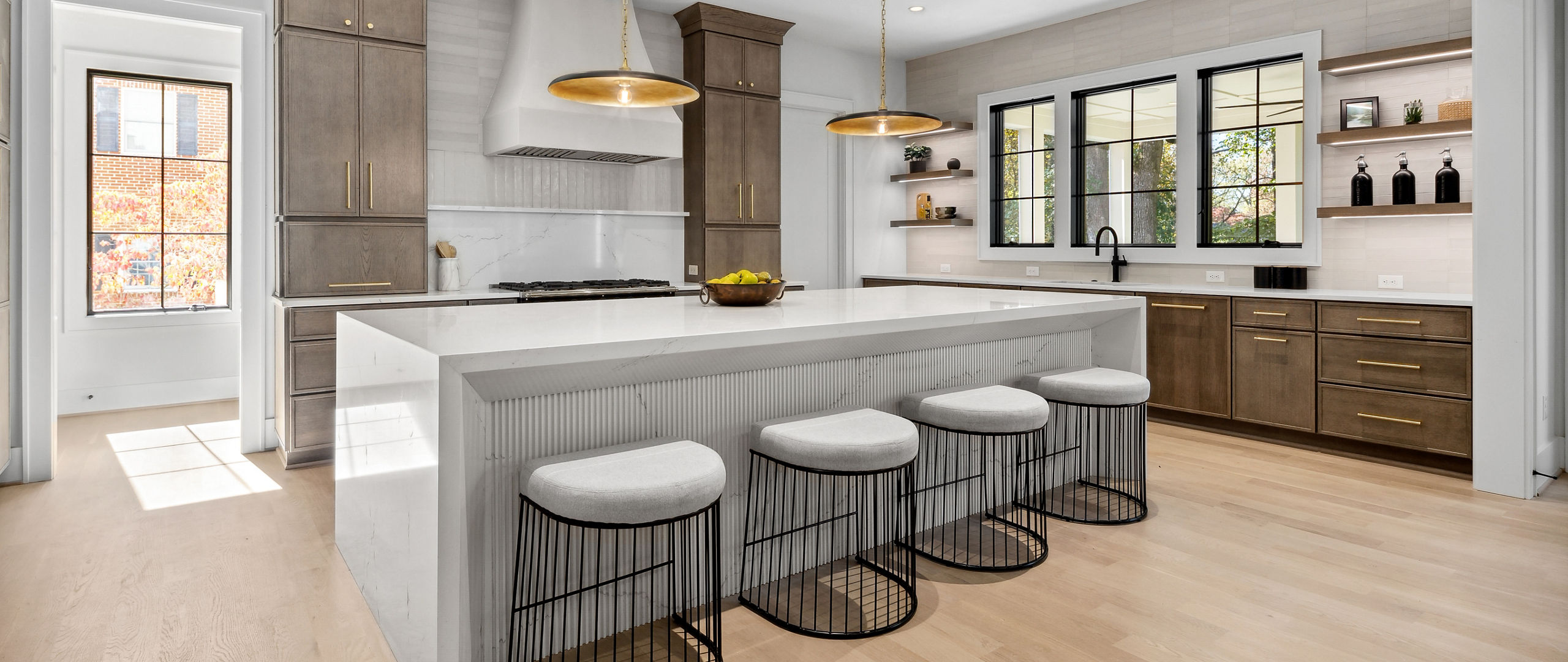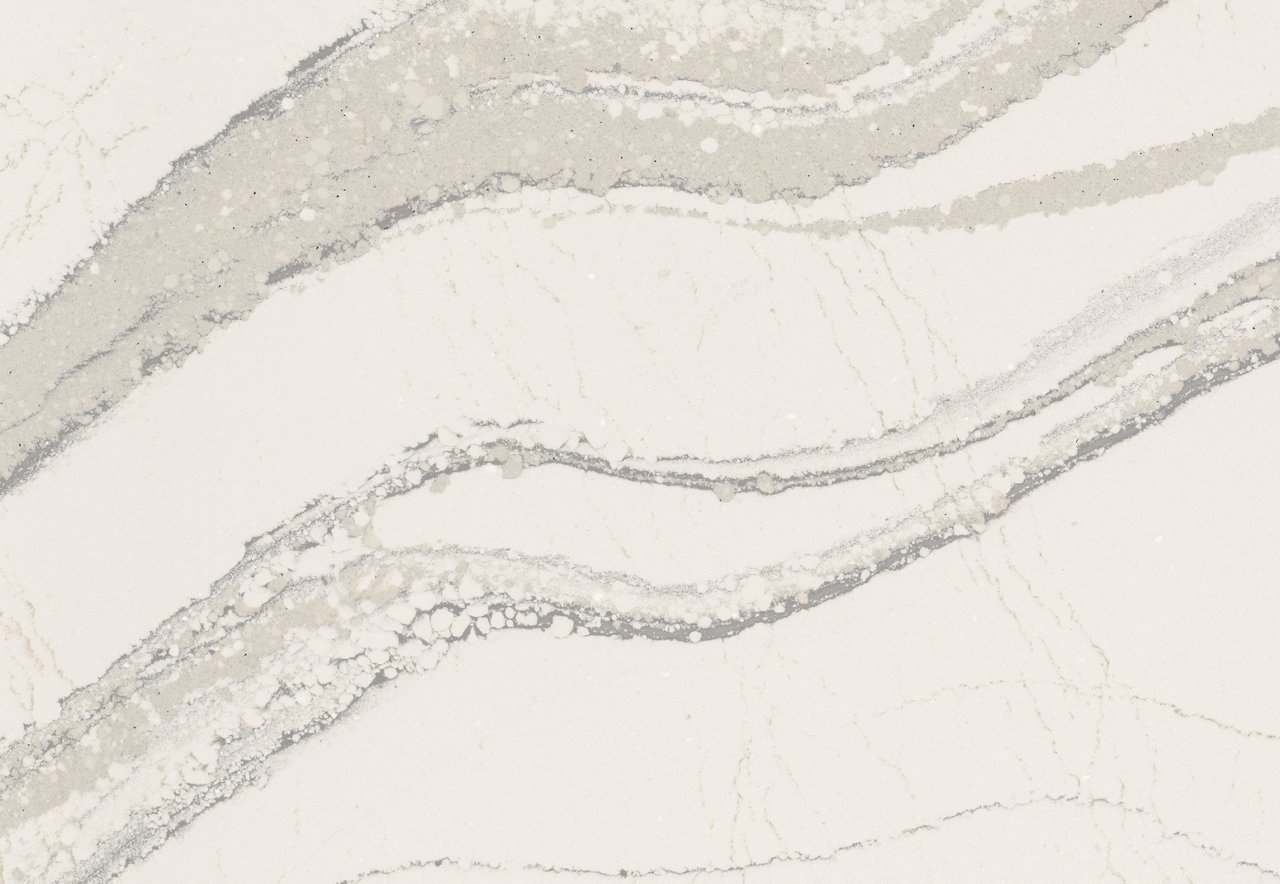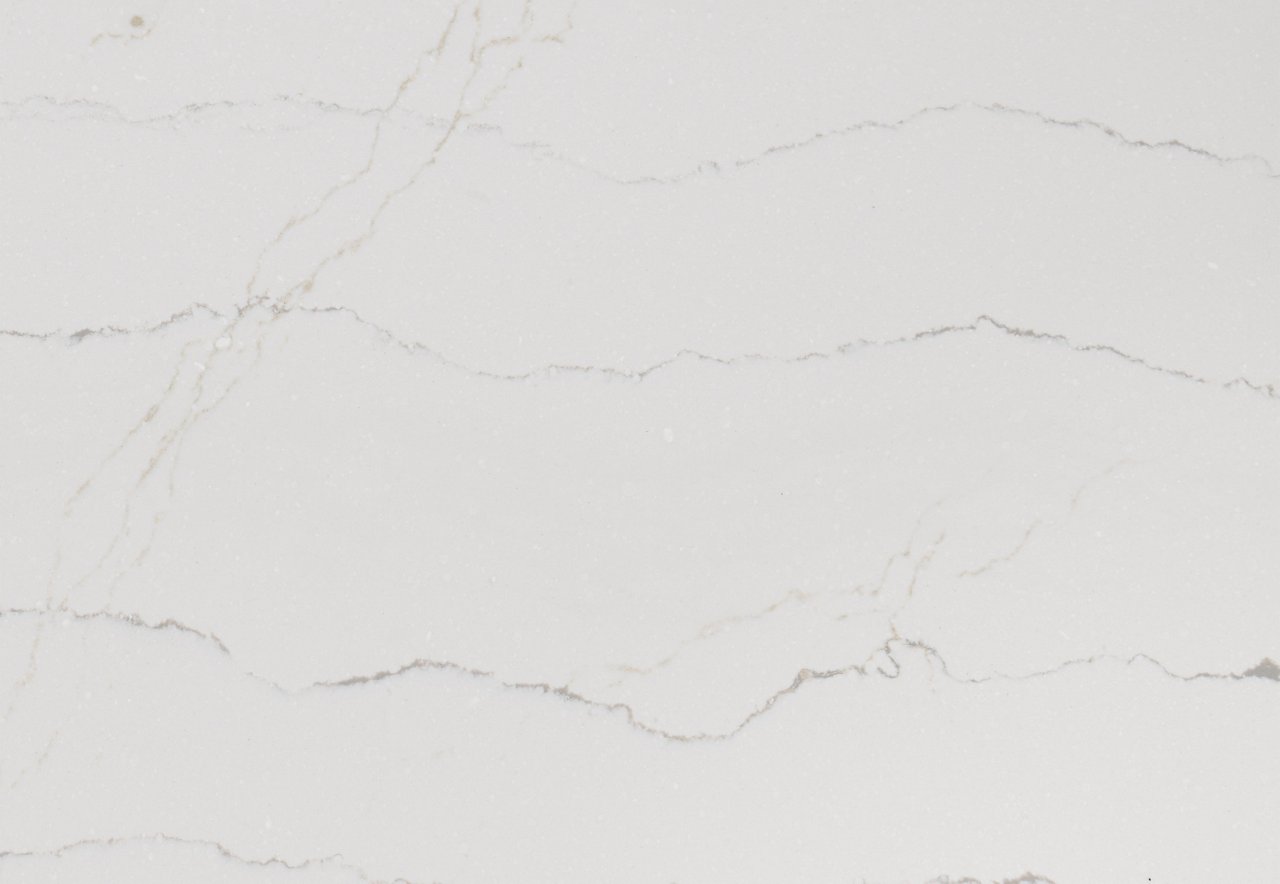Ready to Find the Perfect Countertop for Your Home?
Your countertops have an important job. They bring the design of your kitchen together, play backdrop to daily meals, and often serve as the household hub. So, when starting a kitchen renovation, choosing your countertop is a great place to start. No matter the size of your space, it’s important to select countertops you can rely on to provide a captivating design focal point and deliver daily functionality.
Cambria’s EVP of Design Summer Kath explains the wide range of quality when it comes to kitchen countertops. “There are a lot of options out there to choose from, but they’re not all equal—especially if you’re looking for the highest quality,” says Kath.
Kath walks through the pros and cons of common options to help you decide which countertop material is right for you. With her help, you can find the perfect countertop for your space, adding value and years of enjoyment to your home.
Stone Countertops
The three stone surfaces that are most common in luxury homes are premium quartz countertops like Cambria quartz surfaces, granite countertops, and marble countertops. See how they compare in four key categories: durability, maintenance, porosity, and hygienic quality.
Quartz Countertops
With a wide array of colors and designs, Cambria quartz surfaces are a popular choice for homeowners and designers. Cambria’s natural beauty sets it apart, offering depth and clarity of color, and intriguing movement unlike any other quartz. Because quartz is one of the hardest minerals on Earth, followed only by diamond, Cambria surfaces are durable. They are also scratch- and stain-resistant, and are virtually maintenance-free. They do not require any sealers or polishing agents and cleaning Cambria couldn’t be easier. All you need is warm water, a soft cotton cloth, and mild soap, if desired. To protect Cambria from heat, simply use a trivet as with other natural stones. Unlike granite or marble, Cambria is a nonabsorbent stone. As Kath explains, “If you spill some wine, it won’t stain, and it doesn’t harbor bacteria, so it’s a safe choice as well.”
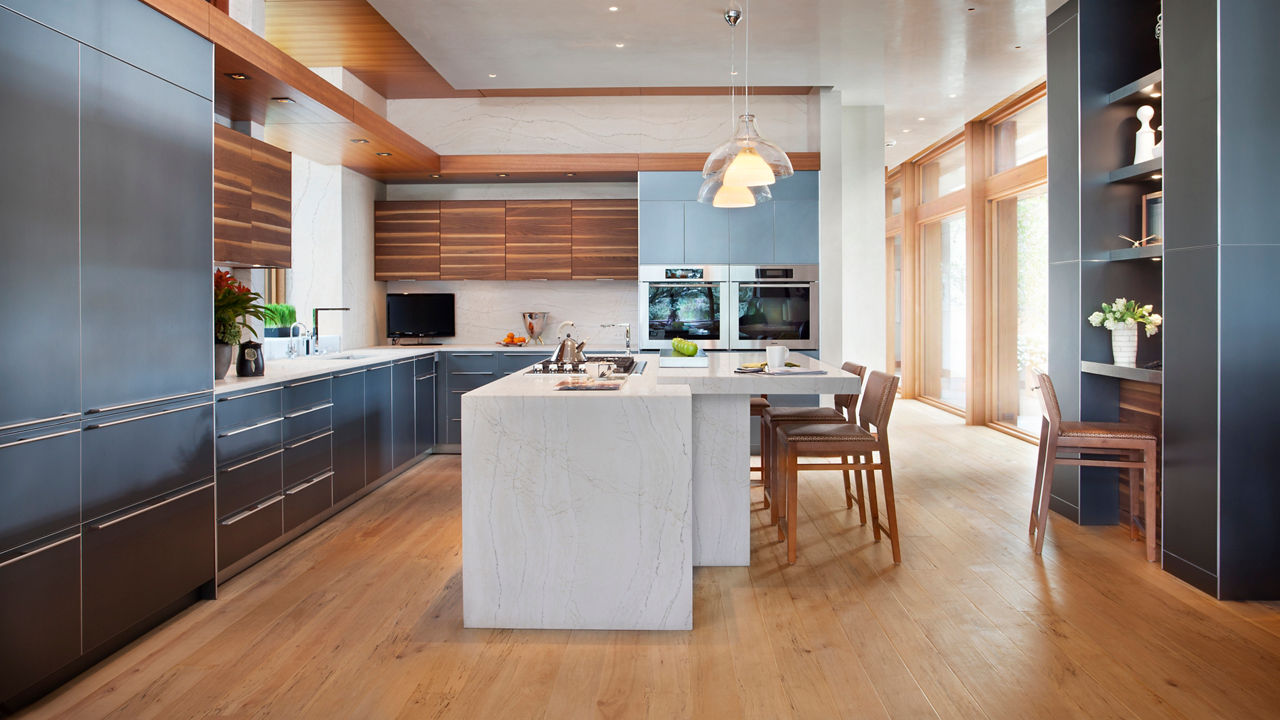
Kitchen featuring Cambria countertops and backsplash. Cambria design shown: Ella™, a marble alternative.
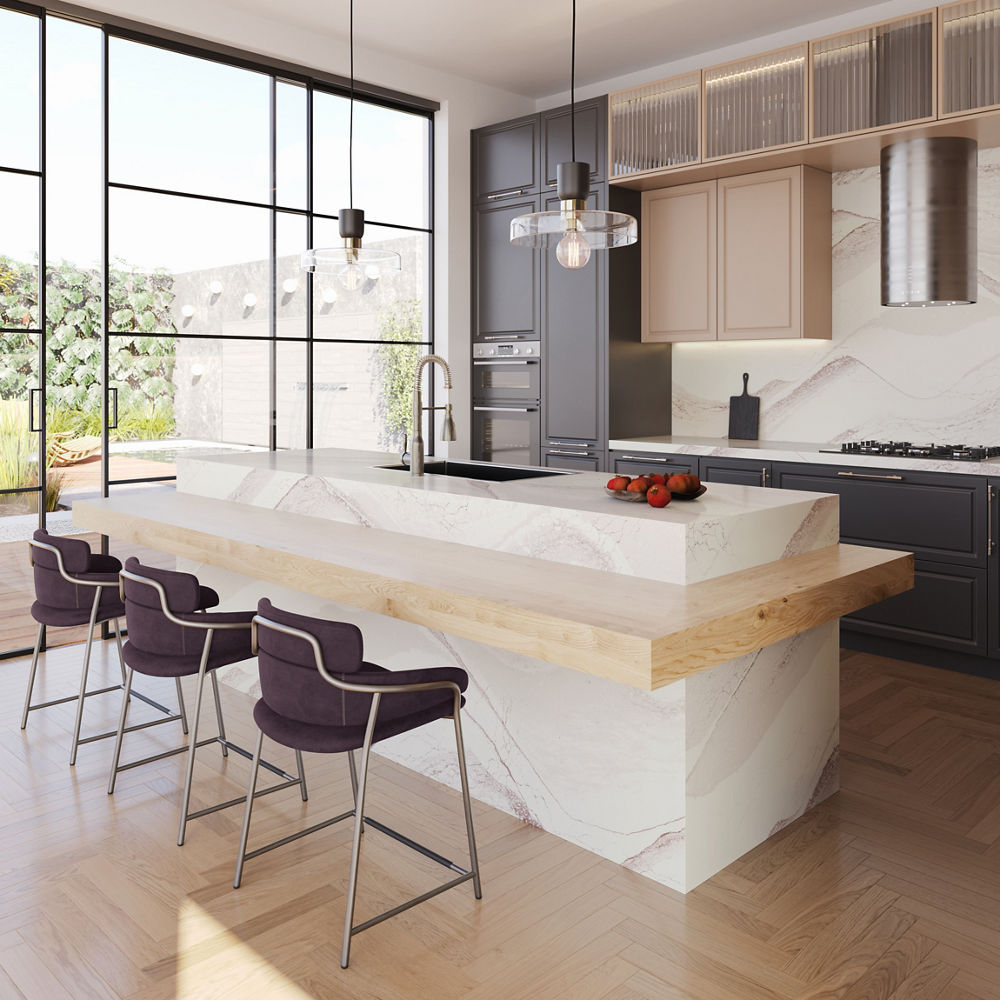
Cambria design shown: Hailey™
Do your research before your renovation—not all quartz countertops are created equal. Knowing where your quartz countertops come from is crucial to ensure the quality of the stone. Some quartz produced abroad may be adulterated and not subject to safety or quality standards, lessening performance and eliminating hygienic benefits offered by a premium brand like Cambria. Cambria is in a class of its own as the leading family-owned producer of American-made quartz surfaces. Learn more about why Cambria is the best choice for your kitchen countertops.
Granite Countertops
According to Kath, granite can handle normal kitchen wear and tear fairly well, but may chip or crack if a heavy object is dropped on it. Granite also requires some upkeep, requiring regular sealing—sometimes as frequently as once a year. Granite is a porous stone, so it may absorb liquids and stain if not sealed properly. This also impacts granite’s hygienic qualities. “If not sealed properly or the sealant wears off, granite can absorb and harbor bacteria,” says Kath. Quartz is maintenance free, stain resistant, and food safe. Check out Cambria’s recommendations for top granite-alternative countertops.

Kitchens featuring granite countertops (left) and marble countertops (right).
Marble Countertops
Marble has become popular because it is uniquely beautiful, but it is more porous than granite, making it a less durable choice for high traffic areas like kitchens and baths. Kath explains, “A hard hit from a pot or pan can chip or even break a piece off.” And, like many natural stone surfaces, marble requires regular sealing to avoid stains and absorption of harmful bacteria. Whereas Cambria has some beautiful marble alternatives that are maintenance free and can enhance any kitchen space.
Other Kitchen Countertop Materials
Stainless Steel Countertops
More common behind the scenes in commercial kitchens, stainless steel is sometimes considered for an industrial look. The pros? Stainless steel is durable and heat and stain resistant. The cons? Stainless steel counters scratch and dent fairly easily, and watermarks and crumbs stand out on the surface. Kath’s recommendation? “My general rule: save the stainless steel for the appliances,” she says.
Concrete Countertops
According to Kath, concrete is durable and heat resistant but is very heavy and tough to install. “You need to make sure your cabinetry can even handle the weight,” she says. Concrete countertops also require regular sealing and may stain if not properly maintained. Read about a high-performing alternative to concrete countertops.
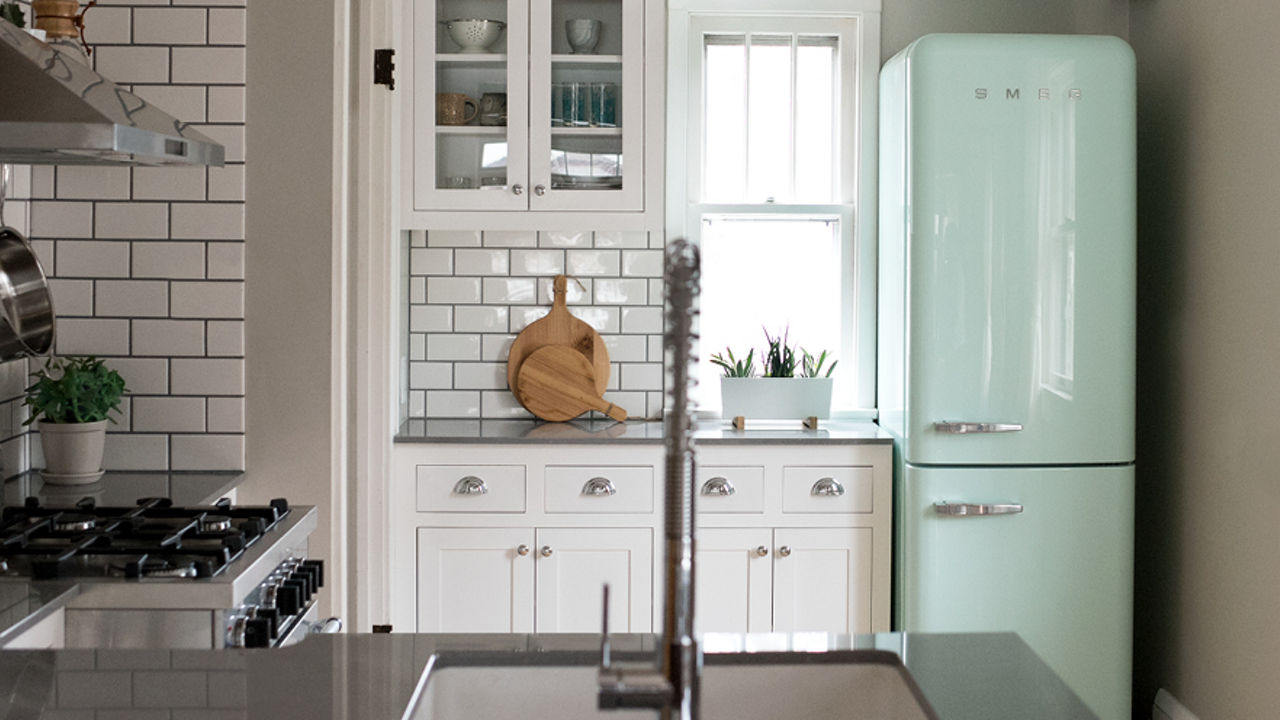
Carrick™ countertops from Cambria offer a concrete-alternative look.
Wood and Butcher Block Countertops
Natural wood countertops like butcher block are not heat or stain resistant and are very high maintenance—requiring frequent sanding, sealing, and oiling. They can also scratch and chip. For these reasons, they are best reserved for an accent or small prep space. “They can be nice to work on,” says Kath, “but they’re not generally an appropriate choice for the entire countertop.”
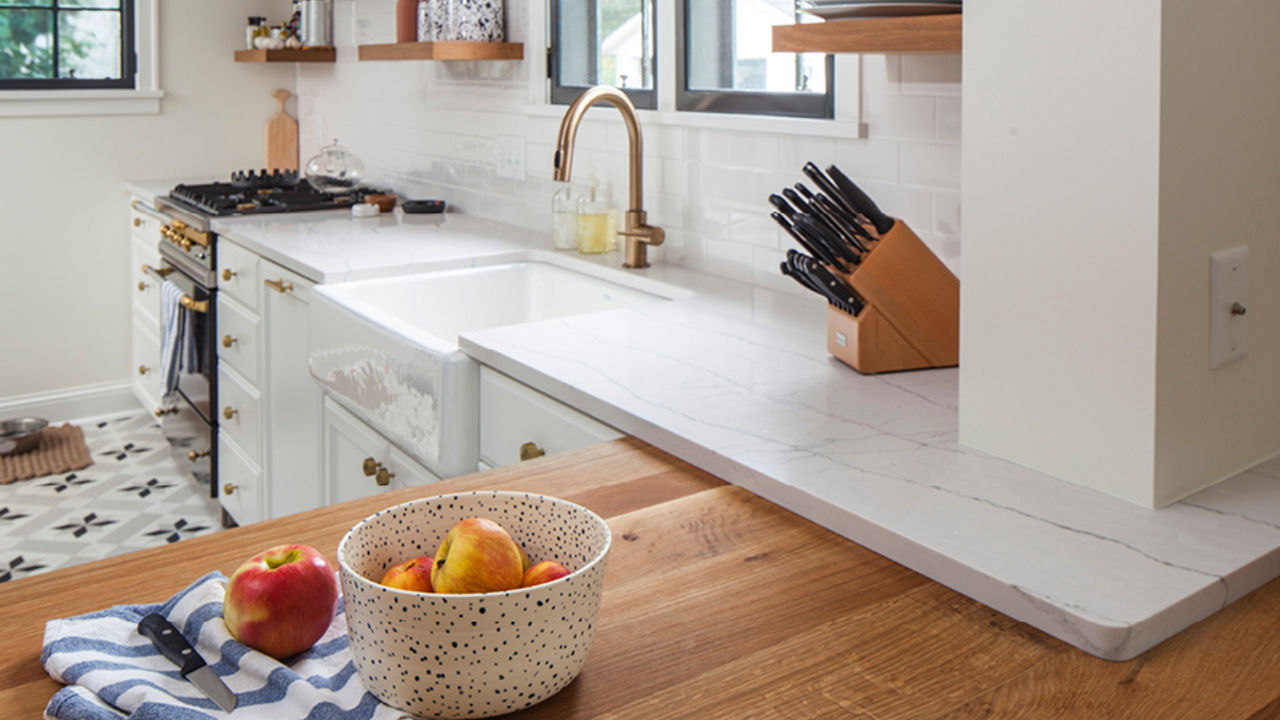
Kitchen featuring Ella countertops by Cambria with butcher block accent countertop.
High-Performing Quartz Countertops
If you love the look of granite, marble, or concrete countertops, you don’t have to sacrifice performance. Cambria’s stunning designs offer a similar aesthetic with benefits that ensure you’ll add value and years of enjoyment to your space.
Explore Cambria's wide-variety of quartz designs.
[Updated on 9/4/2024]
Discover More
Get our beautifully curated collection of lifestyle stories, interior design trends, and expert advice sent straight to your home and email inbox with a complimentary subscription to Cambria Style magazine.
Ready to explore Cambria quartz designs in person? Contact a Cambria consultant or use our retail locator to find a professional in your area for project support and planning, material selection, or visualizing what’s possible.
Explore the #MyCambria Gallery to see how others transformed their spaces and follow us on social media.

